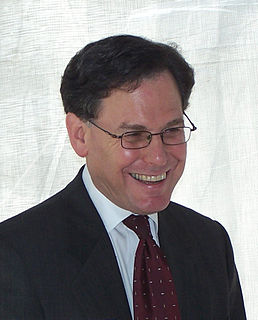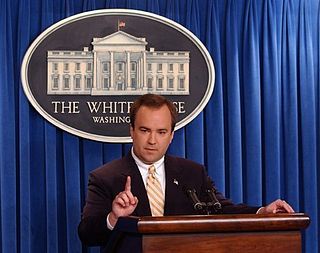A Quote by Rick Atkinson
I think the Bush Administration had basically inherited a policy toward Iraq from the Reagan/Bush Administration that saw Iraq as a kind of fire wall against Iranian fundamentalism. And as it developed over the 1980s, it became a real political run-a-muck... even though the Iraqis were known to be harboring Palestinian terrorists.
Related Quotes
When George W. Bush decided to save the American position in Iraq by going against the advice of all of his wise men, of Jim Baker and the whole Iraq Study Group, and 90% of his administration, that was George W. Bush's decision. So we have to bear in mind that this isn't an administration we're electing. It's a person that we are electing.
Who was it in Afghanistan who screwed up in Tora Bora and let bin Laden escape? It was the Bush Administration. Who leached all the resources, military and civil, from Afghanistan, creating the instability that we see there today in order to prepare for the misbegotten invasion of Iraq? It was the Bush administration. If there's a terrorist problem today, who is responsible now? Bush has not done the job.
Faced with the collapse of Iraq into something like Lebanon - or worse, Somalia - the Bush administration opted for a new counterinsurgency strategy. Violence was reduced because, for the first time since the U.S. invaded Iraq in 2003, Iraqis felt that there was a force capable of dominating the situation and ensuring basic order.
The Bush administration actually started out with an open mind towards Iran, by all indications. In fact, early in the administration, the White House tasked the various agencies of government to do an inter-agency review of Iran policy, as it did with Iraq policy and most of the big areas of the world.
Historically, things were moving in a pretty good direction until the Reagan presidency. And then it all got reversed. The Mexico City policy was instituted - the idea of wrecking the environment for this generation's profit and forgetting about our gets got firmly embedded. I'm sad to say the Clinton administration didn't turn it around and the Bush administration, well, I think they're the worst administration we've ever had, and I used to be a Republican.
The difference between the Bush I war against Iraq and the Bush II war against Iraq is that in the first one, we appealed to the sentiments and interests of the different groupings in the region and had them with us. In the second one, we did it on our own, on the basis of false premises, with extremely brutality and lack of political skill.
As a human being with notoriety and a big mouth, I've felt most threatened during the first Bush Administration. Whenever there's a Bush in the White House, many people die, and the rest of us are threatened. I just didn't think it would happen quite so quickly. The so-called USA Patriot Act, and the announcement of trying people in military tribunals if Bush or Rumsfeld's or Ashcroft's people think they somehow qualify as terrorists, basically, this is McCarthyism run amok.
When George Bush Senior [George HW Bush] was getting his alliance together to go into Iraq - to kick the Iraqis out of Kuwait - he rang me up. I was very close to George Bush Senior; I got to know him well as Vice President to Ronald Reagan. And George rang me up and said, "Oh, Bob," he said, "I'm having trouble with Brian [Mulroney]." He said, "He's got a big wheat trade with Iraq, and he doesn't want to upset that." I said, "You leave it with me."
As a Texas loyalist who followed Bush to Washington with great hope and personal affection and as a proud member of his administration, I was all too ready to give him and his highly experienced foreign policy advisers the benefit of the doubt on Iraq. Unfortunately, subsequent events have showed that our willingness to trust the judgment of Bush and his team was misplaced.
Since the Bush-Cheney Administration took office in January 2001, controlling the major oil and natural gas fields of the world had been the primary, though undeclared, priority of US foreign policy... Not only the invasion of Iraq, but also the toppling of the Taliban in Afghanistan, had nothing to do with 'democracy,' and everything to do with pipeline control across Central Asia and the militarization of the Middle East.


































